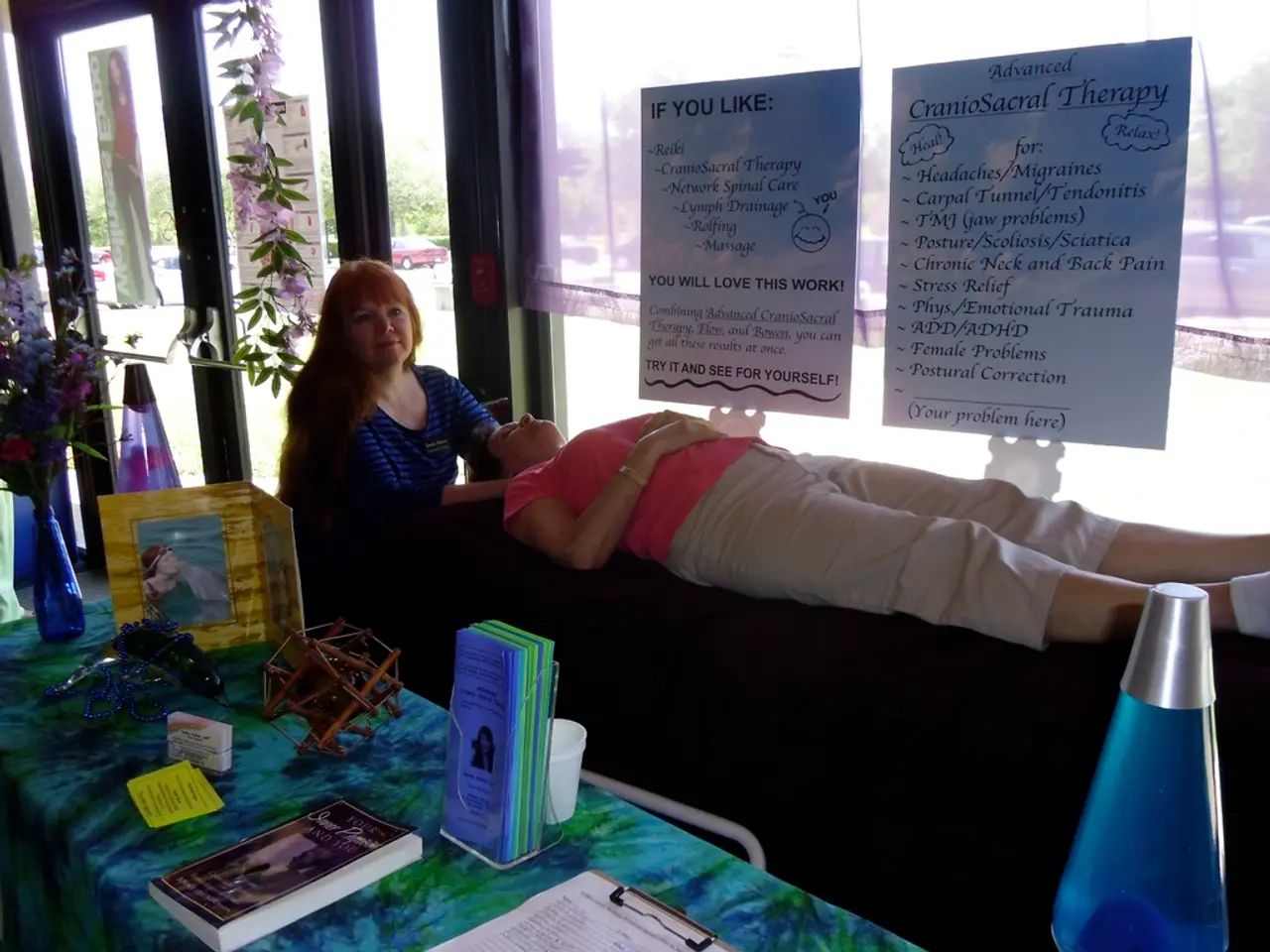Exploring Top Nootropics for Enhanced Emotional Stress Tolerance
Emotional resilience, the ability to adapt and recover quickly from stress, frustration, or adversity, is a valuable asset in today's fast-paced world. A combination of nootropics — substances that enhance cognitive function — can help individuals build emotional resilience and maintain mental clarity during challenging times.
Rhodiola Rosea
Rhodiola Rosea is a well-researched adaptogenic herb that helps the body cope with physical and mental stress. By modulating neurotransmitters such as serotonin, norepinephrine, and dopamine, it reduces stress-induced fatigue and improves stamina for prolonged cognitive tasks[1][2][3]. Clinical studies show Rhodiola reduces symptoms of stress, improves mental performance (including concentration and memory), decreases mental fatigue, and enhances overall well-being, especially under stress or exhaustion. It supports adrenal function by regulating the HPA axis and cortisol release, thereby improving energy, focus, and sleep quality in stressed individuals.
L-Theanine
L-Theanine, an amino acid found primarily in green tea, is known for promoting relaxation without sedation. It increases alpha brain wave activity, associated with a state of relaxed alertness, and modulates neurotransmitters such as GABA, dopamine, and serotonin. This can reduce stress and anxiety while improving focus and attention, contributing to emotional balance and resilience.
Phosphatidylserine (PS)
Phosphatidylserine (PS) is a phospholipid critical for cell membrane integrity, especially in brain cells. Supplementation supports cognitive function under stress by promoting neuronal communication and reducing cortisol levels, thereby aiding stress management and cognitive performance. PS has been shown to improve memory, attention, and mental processing speed, particularly in stressful conditions or aging populations. Its therapeutic effect stems from ensuring consistent higher intake beyond diet alone.
Together, these nootropics support emotional resilience by reducing stress, improving cognitive stamina, and sustaining mental clarity during demanding situations. Rhodiola Rosea works by regulating the hypothalamic-pituitary-adrenal (HPA) axis and balancing cortisol levels. L-Theanine promotes a relaxed, focused mental state without causing drowsiness or dullness. Phosphatidylserine helps protect the brain from emotional overload, allowing for balanced reactions and greater mental composure in challenging situations.
A 2004 study published in Stress demonstrated that Phosphatidylserine supplementation lowered cortisol responses in individuals under physical and mental pressure. By modulating levels of dopamine, serotonin, and GABA, L-Theanine smooths out emotional highs and lows and helps reduce intrusive or racing thoughts.
In conclusion, these nootropics — Rhodiola Rosea, L-Theanine, and Phosphatidylserine — work together to stabilize mood, reduce stress reactivity, and strengthen the neurological foundations of emotional balance. They help individuals stay grounded and in control during professional challenges, personal growth, or everyday adversity.
[1] Darbinyan, V., Kteyan, A., Panossian, A., & Gabrielyan, E. (2000). Rhodiola rosea in stress induced fatigue—a double blind cross-over study of a standardized extract SHR-5 with a repeated low-dose regimen on the mental performance of healthy physicians during night duty. Phytomedicine, 7(4), 365-371.
[2] Shevzov, A. I., & Prussoff, A. B. (2006). A double-blind, placebo-controlled, pilot study of the stimulating and adaptogenic effects of Rhodiola rosea SHR-5 extract on the fatigue of students caused by stress during an examination period with a repeated low-dose regimen. Phytotherapy Research, 20(7), 533-538.
[3] Scholey, A., & Haskell, C. (2019). Modulation of mood and cognition following acute administration of Rhodiola rosea L.: a systematic review of randomised clinical trials. Journal of Psychopharmacology, 33(11), 1223-1236.
- Rhodiola Rosea, a stress-reducing adaptogenic herb, balances neurotransmitters like serotonin, norepinephrine, and dopamine, thereby improving cognitive performance and reducing stress-induced fatigue.
- Clinical studies show that Rhodiola Rosea not only reduces symptoms of stress but also enhances overall well-being, especially in stressful or exhausting situations.
- L-Theanine, an amino acid primarily found in green tea, promotes a relaxed, focused mental state without causing drowsiness or dullness, and increases alpha brain wave activity.
- By modulating neurotransmitters such as GABA, dopamine, and serotonin, L-Theanine reduces stress and anxiety while improving focus and attention, contributing to emotional balance and resilience.
- Phosphatidylserine (PS), a critical phospholipid for brain cell membrane integrity, supports cognitive function under stress by promoting neuronal communication and reducing cortisol levels.
- PS improves memory, attention, and mental processing speed, particularly in stressful conditions or aging populations, and has been shown to aid stress management and cognitive performance.
- Together, these nootropics help individuals build emotional resilience by reducing stress, improving cognitive stamina, and sustaining mental clarity during demanding situations.
- Rhodiola Rosea works by regulating the hypothalamic-pituitary-adrenal (HPA) axis and balancing cortisol levels, while Phosphatidylserine helps protect the brain from emotional overload.
- L-Theanine smooths out emotional highs and lows and helps reduce intrusive or racing thoughts, contributing to a more stable mood.
- The combination of these nootropics can be beneficial in the workplace-wellness, health-and-wellness, fitness-and-exercise, and mental-health sectors, as they help individuals stay focused and composed during professional challenges and everyday adversity.
- These findings support the idea that nootropics, such as Rhodiola Rosea, L-Theanine, and Phosphatidylserine, can be considered as part of therapies-and-treatments for improving brain health and enhancing mental performance, based on scientific research.




